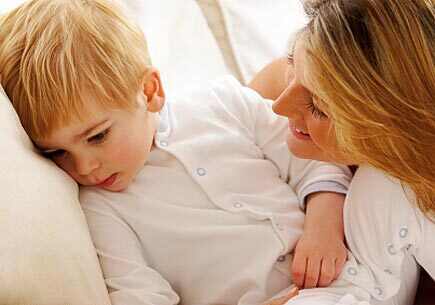A mother’s affection after she spanks her child does little to diminish the negative impact of the act, a new U-M study finds.
“There is a common belief that spanking that occurs in a positive parent-child relationship will not be harmful to children,” says Shawna Lee, an assistant professor at the School of Social Work.
“We were able to test that belief in this study. Spanking predicted worse, not better, child behavior over time, regardless of how warm mothers were with their children.”
Parents use various practices to elicit positive behaviors for children. Despite numerous studies indicating that spanking increases child aggression, parents still continue to use physical punishment at high rates in hopes to see positive behavior, Lee says.
More than 3,200 white, African American, and Hispanic families in major cities participated in the study. Data was collected when children were ages 1, 3, and 5. Mothers disclosed how often spanking occurred and reported children’s aggressive behavior and their own warmth toward their children.
The findings, which appear in the recent issue of Developmental Psychology, reinforce the importance of adults avoiding the use of spanking.
“Use of spanking is ineffective, and only further exacerbates aggressive child behaviors,” Lee says.
Lee’s colleagues on the study included Inna Altschul of the University of Denver and Elizabeth Gershoff of the University of Texas.




Brenda Moner
What the study fails to follow are parents who don’t spank their children. These children are even more aggressive. Children who have never been spanked that slap and hit their parents. So, instead of the parents spanking the children the children are spanking their parents. These children even curse at their parents. As a matter a fact, attend most high schools in the united states where teachers have no control of the classroom. As the years progress this fact will eventually make the news. No control in public schools. No control means little to no learning. Maybe that is why online learning is being pushed to accept the fact that over time public schools will be totally out of control.
Reply
Steven Hewlett - 1975
And your ‘facts’ are backed up by what studies? What don’t you understand about a study that shows more spanking = more aggression and less spanking = less aggression? Are you just trying to rationalize your own parenting techniques? You also should not equate a lack of discipline with a lack of spanking.
Reply
Shawna Lee - 1997, 2005
Dear Brenda, Our sample included children who were not spanked as well as those who were spanked a little or a lot. We found that compared to children who were not spanked, children who were spanked had higher levels of aggression across the first five years of life, regardless of whether mothers were high or low in warmth. I would be happy to share a PDF of the study with you if you would like to read the results. My email is shawnal@umich.edu. Best wishes, Shawna
Reply
Sara Shaughnessy - 2008
We do not use physical punishment in our home and neither of my sons, ages 14 and 11, have ever hit my husband or me. They haven’t physically fought with each other since they were toddlers and they have never been in fights with other boys. They are well adjusted, get good grades, have many friends and have never been in trouble at school.
What you are referring to are parents who do nothing to teach their children right from wrong. Just because a parent chooses to utilize other tools to guide their children does not mean that they are not guiding them.
Reply
Booth Muller - 1969
While it’s obvious that the author of a summary of a study cannot deliver as thorough a picture as the published study itself, a summary this brief is of little value in allowing the reader to evaluate the validity of the study. We’ve all seen academic studies of human behavior that clearly were so ill-designed as to be virtually worthless. Because of the many, many variables involved in real-life humans’ real lives, it’s inevitably going to be difficult to draw unambiguous conclusions, from any experiment or study, with a high degree of confidence. With regard to this study – as prior commenter Brenda Moner suggests – some discipline, occasionally involving some punishment, is surely necessary in rearing kids. Many questions will occur to an inquiring reader – e.g. was the behavioral response to spanking compared with the results of other forms of punishment? And what is the long-term result of physical punishment vs other punishment vs “reasoning” with the child vs ignoring the undesirable behavior? Many more questions spring to mind as well.
Reply
Eric Nelson - 2007 BS Software Eng
The family is a complex thing, and I think childhood behavior is affected by more than the type of discipline selected. A little more information about the control group of this study published in “Developmental Psychology” would be welcome. Showing love right after the child is corrected is a good thing.
Reply